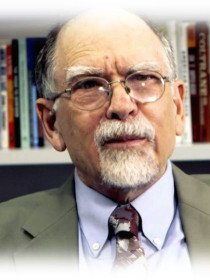
Fred Block
Connect with Fred
About Fred
Block’s research explores the systematic connections among economy, politics, and society, and analyzes the U.S. and global economy from an historical and institutional perspective. He probes the circumstances in which markets alone cannot generate solutions to economic problems. He is currently president of the Center for Engaged Scholarship that provides dissertation fellowships to Ph.D. students in the social sciences whose work contributes to struggles for social, racial, gender, and environmental justice.
Contributions
In the News
Publications
Argues that restoring the vitality of the United States and the world economy can be accomplished only with major reforms on the scale of the New Deal and the post–World War II building of new global institutions.
The report was released at a December 1, 2008 policy event and conference in Washington D.C. Co-sponsored by the Economic Policy Institute, the Information Technology and Innovation Foundation, the Breakthrough Institute, and the University of California, Davis, the conference brought together panels of experts to address how to strengthen the U.S. innovation system, the 'green challenge' - investing in innovation for energy independence and stability, and how to overcome obstacles to improving the innovation system in the United States.